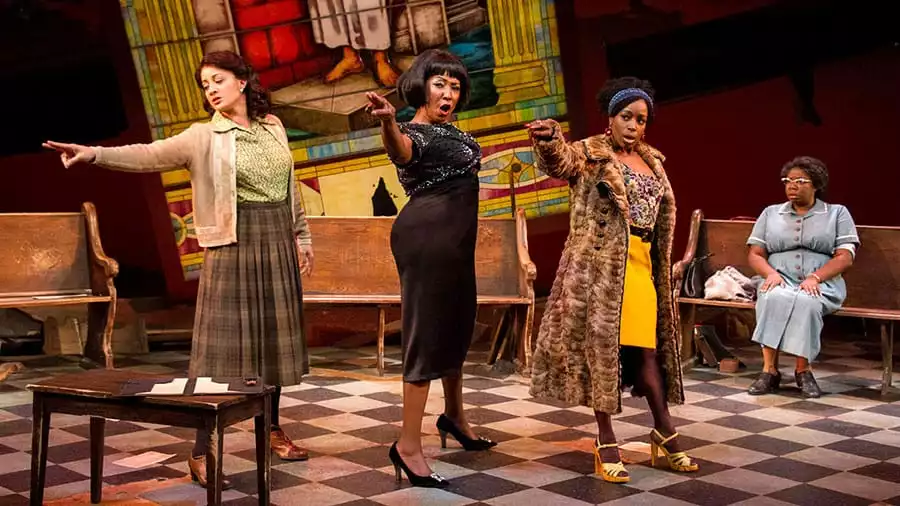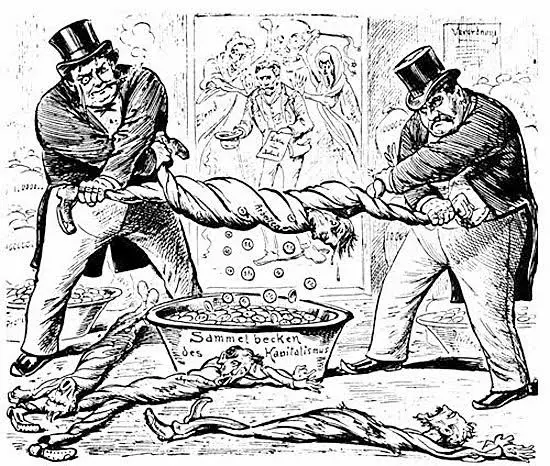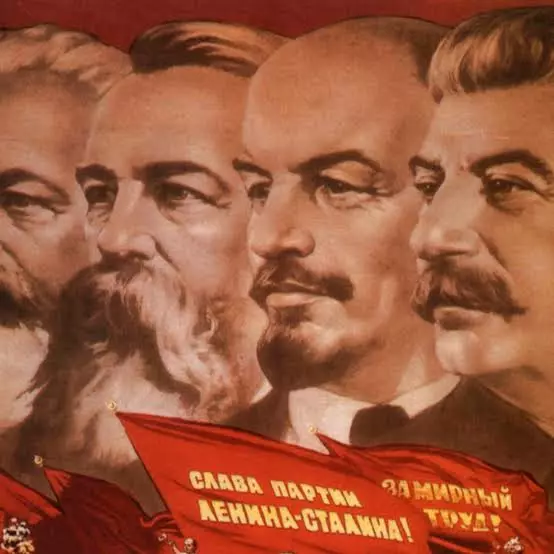"Violence only benefits those who have nothing to lose."
-Jean Paul Sartre
The great pianist virtuoso Duke Ellington once said that, "the masters, frightened by the silence of their slaves, will order them to sing, so as not to give them an opportunity tothink and forge a plan of revenge and liberation". A fact that only adds to the 1857 U.S.Supreme Court ruling confirming that blacks are not citizens. An act which, in addition to its legal dimension, also gave a political dimension to the legal doctrine partus sequitur ventrem, which ultimately comes down to the fundamental economic interests of the American bourgeoisie and landowners in the South. For the majority of southern landowners in the United States, the preservation of slavery was a political imperative, while for representatives of the North, slavery as an institution was a moral and political evil. Something that will further form the basis of the struggle of the militant opponents of slavery, the abolitionists, against the conspirators. Undoubtedly, there were many anti-segregation advocates in the ranks of the authors of the Declaration of Independence, or "the fathers of the nation," following the example of Benjamin Franklin, who argued that slavery was against the ideals of the Declaration itself. They followed the example of the British reformer William Wilberforce, whose campaign to abolish slavery in the British Kingdom would be won in 1833. Yet the great landowners of the South, for whom slavery was of great economic importance, could not so easily give up the privileges they enjoyed, vehemently opposing the abolitionists who, led by William Lloyd Garrison, the owner of a newspaper, formed an anti-segregation society. It included Harriet Beecher Stowe, among many prominent figures opposed to slavery. Also, the daughter of the famous Calvinist priest and one of the leaders of the anti-slavery movement, Lehmann Beecher, while her brother Henry Ward Beecher was a prominent preacher. However, Harriet Beecher Stowe is the author of Uncle Tom's Cottage, published in March 1852, which has been published as a feuilleton in an abolitionist newspaper since June 1851. Her book helped spark a public debate against slavery in the United States, drawing much public attention and the need to create public opinion regarding this evil. A year later, in 1853, Solomon Northup, an African-American free slave, would write a memoir entitled 12 Years of Slavery between 1841 and 1853, when he was in slavery, before becoming a free citizen again and joining the abolitionist movement. The abolitionists were joined by the famous black activist and humanitarian Harriet Tubman, who will organize as many as 19 expeditions during which more than 300 slaves have been freed.
A fact that only adds to the 1857 U.S.Supreme Court ruling confirming that blacks are not citizens. An act which, in addition to its legal dimension, also gave a political dimension to the legal doctrine partus sequitur ventrem, which ultimately comes down to the fundamental economic interests of the American bourgeoisie and landowners in the South. For the majority of southern landowners in the United States, the preservation of slavery was a political imperative, while for representatives of the North, slavery as an institution was a moral and political evil. Something that will further form the basis of the struggle of the militant opponents of slavery, the abolitionists, against the conspirators. Undoubtedly, there were many anti-segregation advocates in the ranks of the authors of the Declaration of Independence, or "the fathers of the nation," following the example of Benjamin Franklin, who argued that slavery was against the ideals of the Declaration itself. They followed the example of the British reformer William Wilberforce, whose campaign to abolish slavery in the British Kingdom would be won in 1833. Yet the great landowners of the South, for whom slavery was of great economic importance, could not so easily give up the privileges they enjoyed, vehemently opposing the abolitionists who, led by William Lloyd Garrison, the owner of a newspaper, formed an anti-segregation society. It included Harriet Beecher Stowe, among many prominent figures opposed to slavery. Also, the daughter of the famous Calvinist priest and one of the leaders of the anti-slavery movement, Lehmann Beecher, while her brother Henry Ward Beecher was a prominent preacher. However, Harriet Beecher Stowe is the author of Uncle Tom's Cottage, published in March 1852, which has been published as a feuilleton in an abolitionist newspaper since June 1851. Her book helped spark a public debate against slavery in the United States, drawing much public attention and the need to create public opinion regarding this evil. A year later, in 1853, Solomon Northup, an African-American free slave, would write a memoir entitled 12 Years of Slavery between 1841 and 1853, when he was in slavery, before becoming a free citizen again and joining the abolitionist movement. The abolitionists were joined by the famous black activist and humanitarian Harriet Tubman, who will organize as many as 19 expeditions during which more than 300 slaves have been freed. Due to the fact that she was a spy for the Union Army during the Civil War, her head will be blackmailed by landowners and slave owners to a staggering $ 40,000 at the time. Yet all this is preceded by numerous slave revolts throughout the colonized territories of the North American continent. Most notable is the one led by Nat Turner (called the "prophet") in 1831, the only effective and sustained slave rebellion in the United States. This dispels the southern myth that slaves are content or too servile to stage an armed rebellion. However, Nat Turner would pay for this determination with his life, as well as most of his 75 followers who will oppose the force of about 3,000 state police and soldiers, as well as hundreds of white volunteers. A six-week riot will raise the question of US slavery, which will further have strong implications for their history, which will be marked by civil war only thirty years later. However, the abolition of slavery after the war will be only declarative, and segregation in a divided American society will take at least another century.
Due to the fact that she was a spy for the Union Army during the Civil War, her head will be blackmailed by landowners and slave owners to a staggering $ 40,000 at the time. Yet all this is preceded by numerous slave revolts throughout the colonized territories of the North American continent. Most notable is the one led by Nat Turner (called the "prophet") in 1831, the only effective and sustained slave rebellion in the United States. This dispels the southern myth that slaves are content or too servile to stage an armed rebellion. However, Nat Turner would pay for this determination with his life, as well as most of his 75 followers who will oppose the force of about 3,000 state police and soldiers, as well as hundreds of white volunteers. A six-week riot will raise the question of US slavery, which will further have strong implications for their history, which will be marked by civil war only thirty years later. However, the abolition of slavery after the war will be only declarative, and segregation in a divided American society will take at least another century.
Until the 1963 Washington March, attended by more than 250,000 citizens led by Martin Luther King, Jr., a Baptist priest who delivered a historic talk called I Have A Dream, a dream dreamed of by thousands of African-Americans and their fighters hundreds of years ago for liberation from slavery, as well as civil rights activists and the black cause in general, including Frederick Douglas. In the speech, among others, Dr. King will say: "Today I want to say to all Americans and all the people of the world... Our current movement will not stop any wave of racism."

While the great civil rights activist who would later be assassinated by white extremist James Earl Ray was right, his struggle was not in vain. Just as black music from the second half of the 19th and the first half of the 20th century was not in vain, as a protest against the attempt to point out racism and segregation in the United States. But it has managed to leave a culturally indelible mark on the social lives of millions of Americans, values of civilization that prevail to this day. Music that is based on the blue notes and the structure of the 12 most frequently repeated beats, which contains a spiritual character, with all its fervor will bring to the surface the revolt of the ordinary African-American deeply chained to the margins of society without any rights. Music with which for many decades the enslaved oppressed black citizen of the United States, will not only maintain the spirit that can not be overthrown by the white supremacist, but in the form of protest will challenge its exploiter. Simple notes with emotional charge and content that result from the suffering of the oppressed black worker across the harvested cotton plantations and railways from east to west. Instead of speech that was strictly forbidden during work, notes that through improvisation keep the physical body exposed to effort in "vigilance". In this way, African Americans pronounced English words in their own African way, in harmony with the language of their ancestors. Such speech was called blacktalk by the whites, thus reinforcing the white supremacy at the expense of "black ignorance". Aware that supreme white masters and exploiters will never understand the magnitude of their philosophy of existence, they reject the stereotypical phrase of their white masters, that they live instinctively, dedicated only to the present, with no desire to oppose or retaliate against their exploiters. Historical data shows the opposite. Namely, Herbert Apterker lists as many as 130 recorded riots in the period between 1663 and 1865, which is proof of the decisive rejection of the shackles. For them, music is just an elixir of life that keeps the spirit rejuvenated and the mind awake. It is no coincidence that the great American philosopher Ralph Waldo Emerson would say that "music is Parnassus for the poor." African-American spiritual music rooted in the sub-Saharan equatorial west and northwest of Africa, after the abolition of slavery, would serve to develop new directions, including blues, reggaeton and jazz, which in its own way will be a privilege for whites and the rich.
The blues that will later develop in many sub-directions, such as country blues, delta blues, electric blues, boogie-woogies and many others, are characterized by strong emotions emanating from life, harsh reality, the harsh truth of existentialism, the oppression of the dominant white race…

The early rural blues initially appeared as a form of free storytelling, where verses were sung more through rhythmic speech than through melody. The whole dark picture of the music that is born in the ashes of the post-slavery era includes the ambience where it is thus performed, away from the eyes of the community, in dirty and neglected bars and lounges, beds of vices and shelters for guests with questionable morality. An ambience that can capture the image of the relationship between a man and a woman, bad luck, life on the margins and hard times. In the blues as a theme there is generally a domination of the negative aspect of love, personal ups and downs, family disasters, separations and expectations, infidelities and forgiveness, longing for someone, where it is all accepted as a necessity and inevitability, which through a word play is interpreted in a somewhat conciliatory way. But there is also a part where the social aspect is translated into a 12-beat musical form where there are double repetitions of the verses. It primarily describes the hard work of the black worker, the migration to the big cities in search of a better life, the countless travels and life experiences, all that has to do with existentialism. Finally, we have the politically engaged blues, which openly talks about injustice, exploitation, racism and segregation, but also the refusal to go to war, as a strong protest against colonialism, imperialism and military interventionism in the world. An example of a performance of this type of protest music is the prominent blues musician J. B. Lenoir. But regardless of the theme, the performers of the early blues felt profound relief through the music. As far back as 1801, Carr's Musical Journal published a text whose author Parks notes during his travels in the South, thus offering the oldest documented evidence of the origin of the labor songs performed by black slaves. He says the following: "They made their job easier with a song, and they composed one of the songs extempore, while she sang it just for me. It was sung by a young woman, and the others supported her as a kind of choir. "The atmosphere was sweet and sad." In 1903, the Baltimore Sun reported on an example where a white boss fired a black man from a railroad group, believing that he sang more than he woked. He thus made a reckless mistake. After that, all the workers lost all will to work, becoming completely ineffective, looking for their friend back in the group. After this, the boss was forced to send him back to work, whereby after his return all the workers in the group started working twice as hard. Even William Christopher Handy, for many the father of the blues, working as a young man in a quarry as a water carrier, has observed that all sweaty workers when singing a particular song experience real relief from the infernal heat that constantly torments them. What is also noteworthy is that in the period from the first half of the 19th century there is very little written data on the development of black music in the years after the independence of the United States.
It was not until 1867 that the first black song was released, entitled Slave Song of the United States. For blacks in the north, the beginning of the 19th century and the victory in the war with England marked a transition from slavery to "freedom", despite the fact that it would not be abolished until half a century later. A formality that will be a fierce struggle for survival and justification of the material foundations in the exploitative conditions of liberal capitalism and a struggle with the former masters, who continue to look at them from above and with contempt, convinced of their inferiority. In their struggle, black writers and rare white allies constantly point to the achievements and merits of famous blacks as proof that "the power of reason is independent of skin color" and that "blacks are by nature not inferior to whites and incapable of achieveing any achievements and successes in science and art ".






